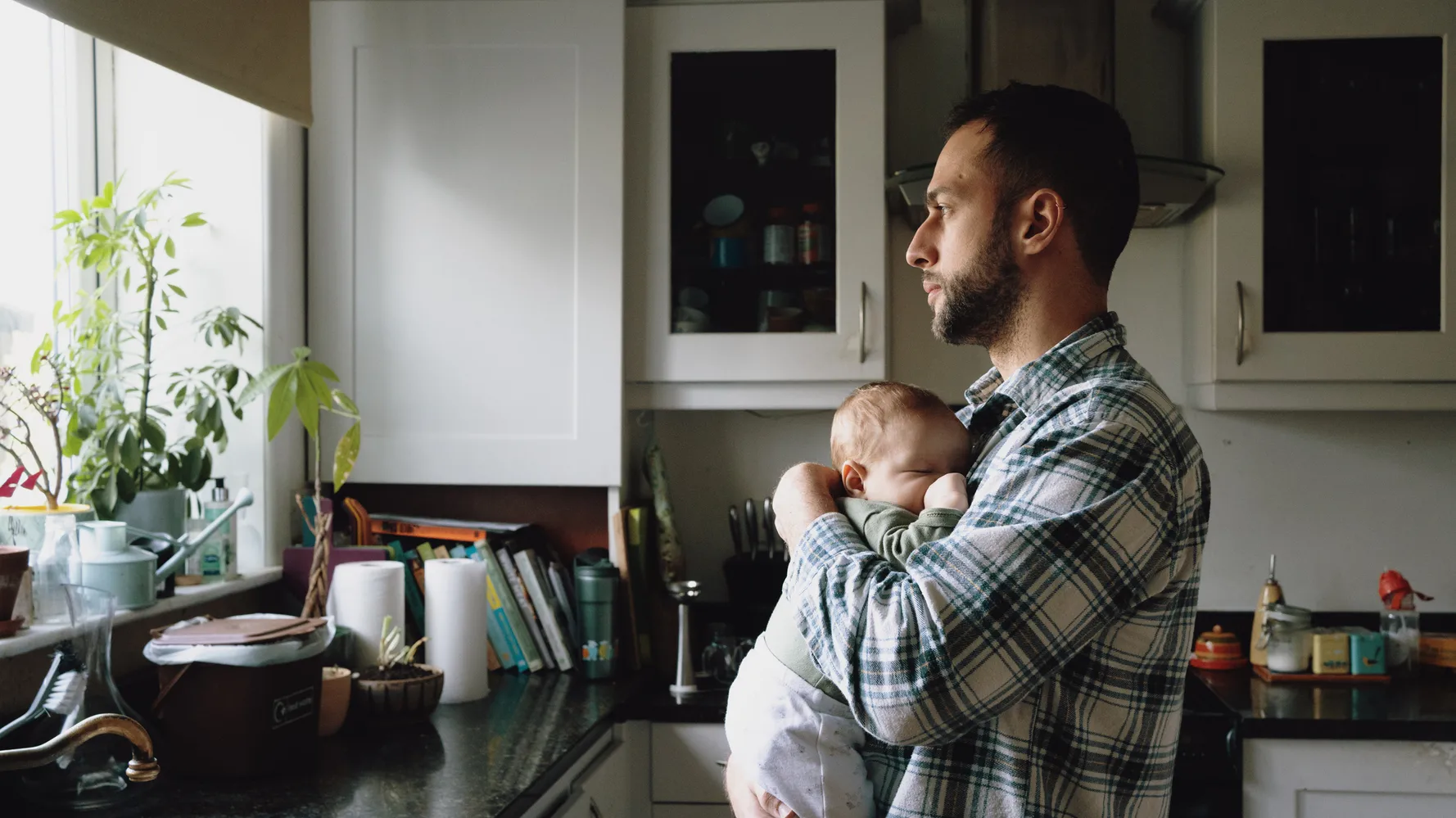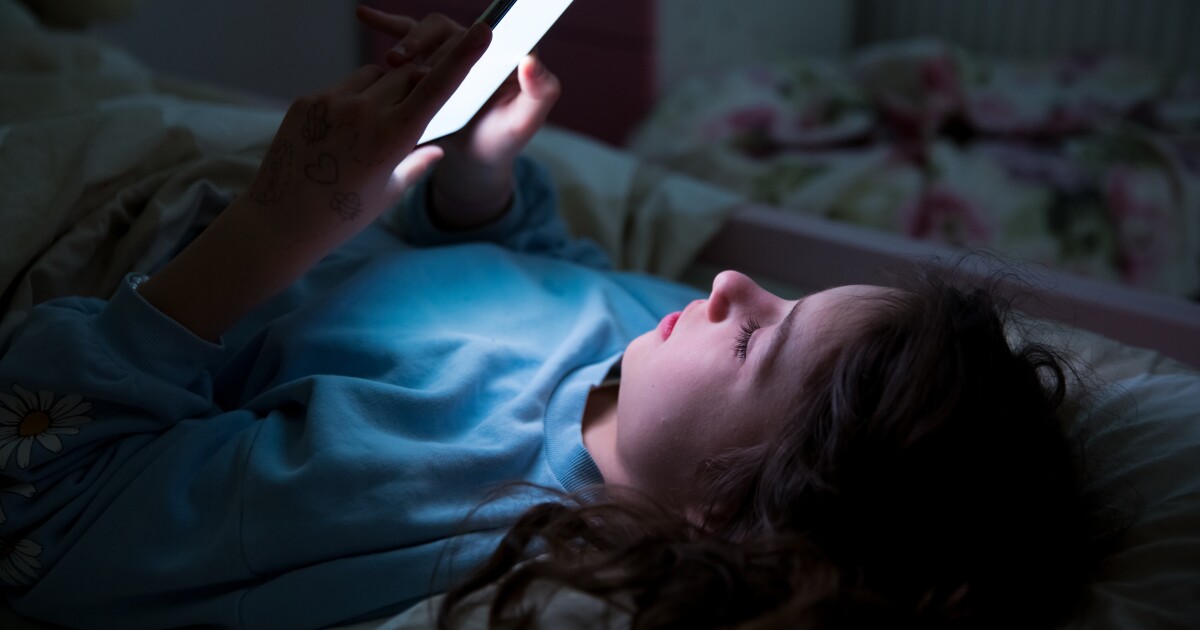By Natasha Hinde
Copyright huffingtonpost

In those early years after having a baby, much of the mental health focus is on new mums.
While this is undoubtedly important – as many as one in five women develop a mental illness during pregnancy or in the first year after birth, and suicide is a leading cause of maternal deaths in the UK – dads can often fall through the cracks in this crucial conversation.
Recent research by Swansea University, commissioned by the newly launched 1001 Critical Days Foundation, revealed two to three babies lose their fathers to suicide every week in the UK.
Professor Ann John, of Swansea University, said early parenthood is a “critical time for intervention and father inclusive services for perinatal mental health”.
“We often run campaigns asking men to seek help for their mental health but we could be much more proactive in offering support at those keys times of transition when they are in contact with services,” she said.
Dave Harley, who is based in Oxford, experienced paternal postnatal depression after the birth of his son. He had taken two weeks of statutory paternity leave, followed by two weeks annual leave – and then he was straight back into full-time work.
The parent acknowledges that something “didn’t feel right” and he could barely concentrate at work. Paternal postpartum depression symptoms generally resemble those in women (the feelings of sadness, anxiety and difficulty coping), but studies note men might also experience indecisiveness, irritability and emotional blunting.
“I just wanted to be at home, and felt guilty for not being there,” Dave said.
He swiftly realised there “wasn’t anyone to talk to” for dads. The couple had an “amazing” midwife who had supported them after the birth of their child, “but her support was really for my partner and our son”, Dave said.
He believes that a longer period of paternity leave might’ve helped him adjust better to the huge life change.
It would’ve also been helpful to have support from a service that recognised what he was going through as a new dad struggling to balance work and this entirely different life – one filled with nappy changes, sleepless nights and the unspoken stress of keeping an infant alive.
He went to the GP who was able to give him some medication for his depression, but he noted, “I didn’t know where else to go”.
Fathers are mostly excluded from specialist perinatal mental health services. Some initiatives for dads exist, however not everyone knows about them.
DadPad – a guide offering information for new fathers – is one such initiative which Dave wishes he’d known about sooner. The charity Home-Start also runs Dad Matters, offering support to those transitioning to fatherhood. (You can find more support services below.)
“I think being given an awareness of the services out there, just some information, would have really helped me find more support,” Dave said.
Swansea University’s Professor John, who is also director of the National Centre for Suicide Prevention and Self-Harm Research, said “8-13% of fathers are thought to experience depression during pregnancy and early parenthood”.
She said the UK needs “pathways, from self-care resources to specialist perinatal mental health services, to be available and tailored to dads as well as mums”.
In the UK, mums get a series of antenatal checks, as well as a couple of checks after the birth of their child – usually with a midwife or health visitor, and then a GP (which is tagged onto their baby’s health check).
For dads, there is nothing like that. You can book in to see your GP if you’re struggling – like Dave did – but there are no proactive check-ins.
As a result, The Fatherhood Institute is calling for dads to be given two health checks – one before and one after the birth of their child. It is also campaigning for fathers to have six weeks of paid paternity leave in their baby’s first year.
For Dan Whiteway, from Berkshire, becoming a new parent was a “really challenging time mentally” – especially as his partner had experienced a traumatic birth.
“When your partner has had a traumatic birth experience – and you’ve seen the person you care about so much go through such an experience – it is only more overwhelming,” he told HuffPost UK.
“You’re in the zone of needing to look after this new, amazing addition to your family. So trying to deal with what you and your partner have been through gets lost – there just isn’t enough time.
“Even with being able to take two weeks of statutory paternity pay and then two weeks of annual leave, [it] was nowhere near enough time to get the professional help we both needed.”
Dan said the knock-on effects of this impacted every part of life, “parenting, your relationship together, your work”.
Like Dave, he believes fathers need more time with their families after having a child. It’s something George Gabriel, co-founder of The Dad Shift, is also fighting to change.
“Becoming a dad is one of the most important and challenging times in a man’s life. There’s so much to learn, so much to manage and the financial pressures are immense,” he told HuffPost UK.
“The UK’s rubbish paternity leave system means dads and non-birthing parents get the least support in Europe, just two weeks on less than half the minimum wage and with nothing at all for the self-employed.”
Earlier this year the UK government announced a review of the parental leave and pay system, acknowledging that the current system is complicated and doesn’t always give families the support they need.
One in three dads don’t take paternity leave because they can’t afford to, and take-up of shared parental leave remains very low.
A survey from The Dad Shift found 82% of dads said the single biggest thing the government could do to support their wellbeing in the first years of a baby’s life is improve the UK’s statutory paternity leave.
George added: “Our hope is that the government’s review of parental leave is an opportunity to finally do just that.”
More helpful resources for new fathers:
Hub of Hope is the UK’s largest mental health support directory. Andys Man Club offer free peer-to-peer support groups for men struggling with their mental health.PANDAs UK offer free mental health support to all parents, including dads.
Help and support:
Mind, open Monday to Friday, 9am-6pm on 0300 123 3393.Samaritans offers a listening service which is open 24 hours a day, on 116 123 (UK and ROI – this number is FREE to call and will not appear on your phone bill).CALM (the Campaign Against Living Miserably) offer a helpline open 5pm-midnight, 365 days a year, on 0800 58 58 58, and a webchat service.The Mix is a free support service for people under 25. Call 0808 808 4994 or email help@themix.org.ukRethink Mental Illness offers practical help through its advice line which can be reached on 0808 801 0525 (Monday to Friday 10am-4pm). More info can be found on rethink.org.



